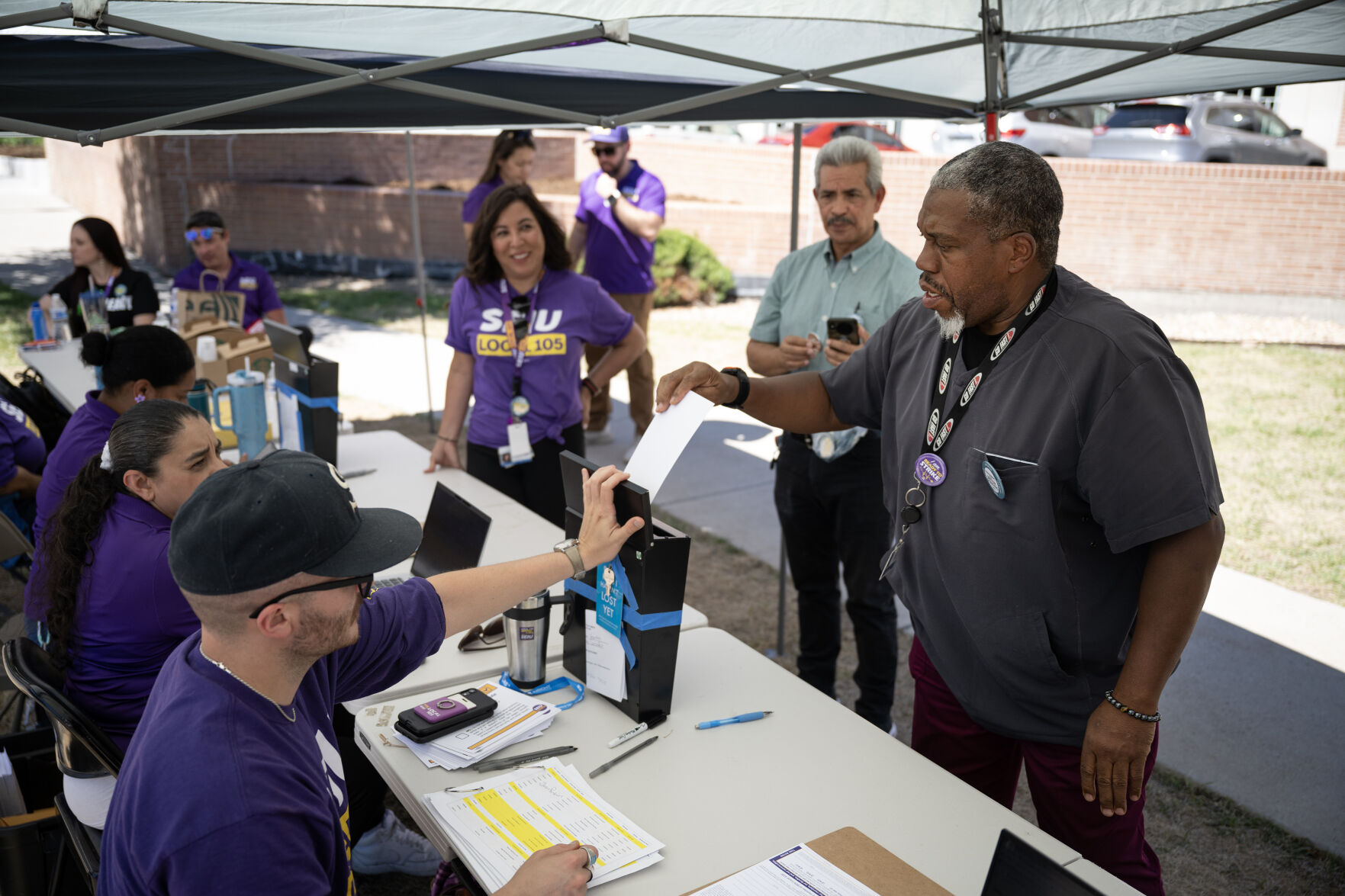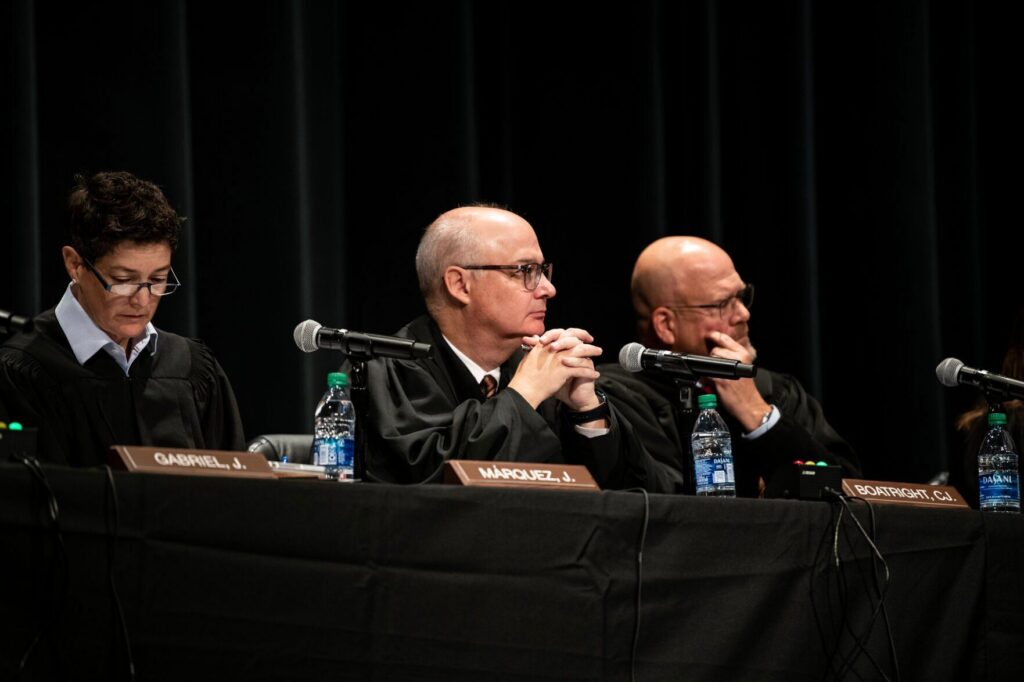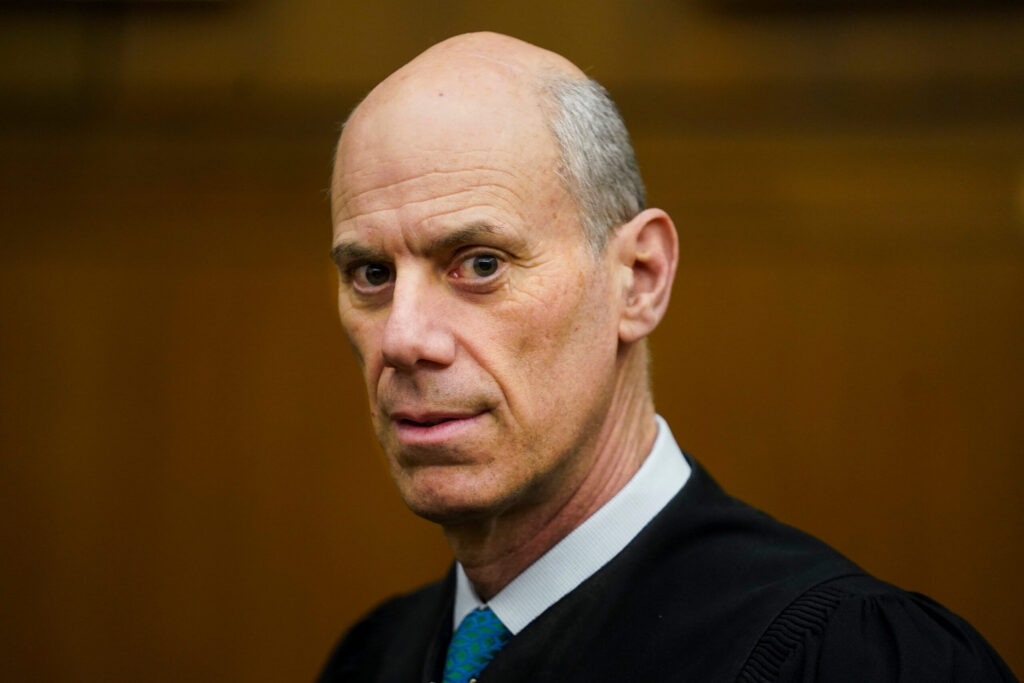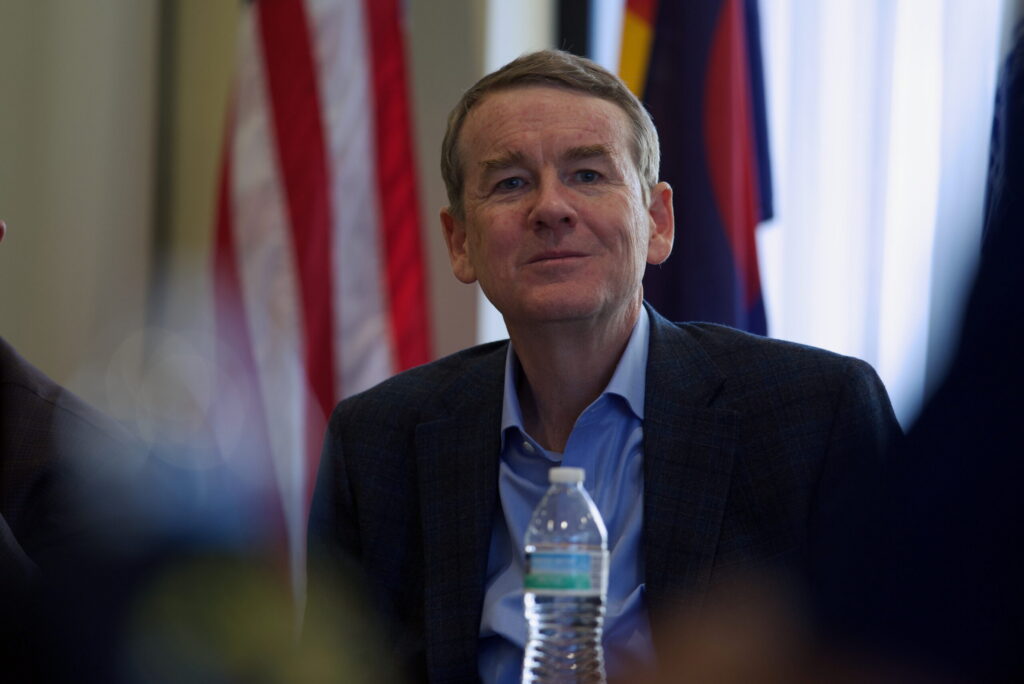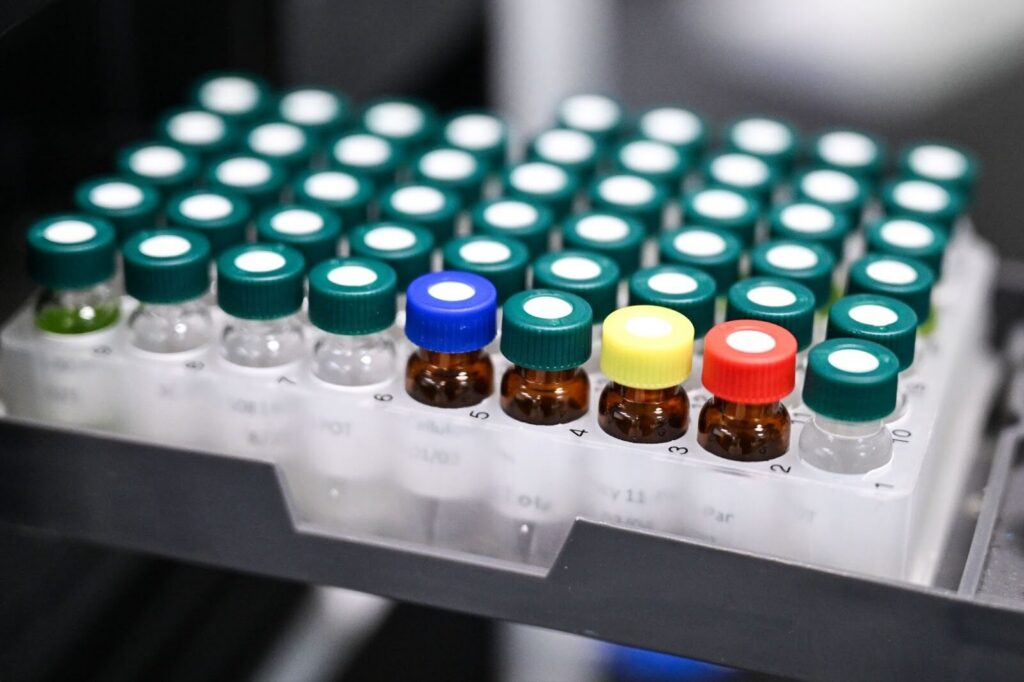Colorado’s Kaiser Permanente workers authorize strike
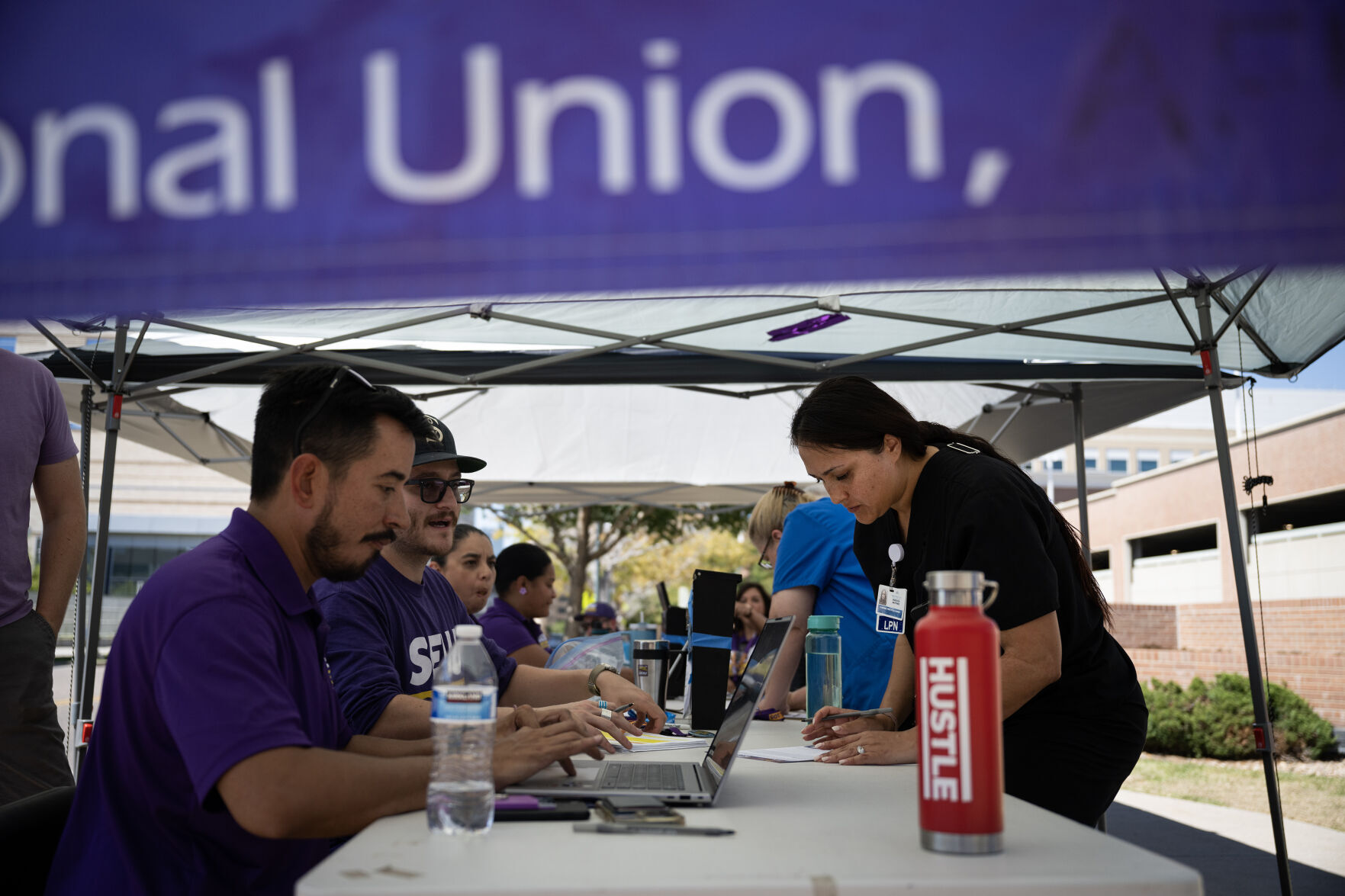
Healthcare workers at Kaiser Permanente’s Colorado facilities have decided to authorize a strike, a local union said Friday.
An overwhelming 99% of the workers voted “yes” on the question, according to Service Employees International Union Local 105.
The labor contract the Service Employees International Union has with Kaiser expires at the end of September. Kaiser officials have said they are confident about reaching an agreement with the union before the contract expires on Sept. 30.
Voting on the question will continue through mid-September across the country until Kaiser Permanente’s 85,000 workers have had the chance to cast a ballot, the union said, adding that a nationwide strike, if authorized, would occur after Sept. 30.
“This week, we sent a strong message to Kaiser management,” Stephanie Felix-Sowy, president of SEIU Local 105, said in a news release. “We’re ready to bargain, and we’re ready to do what’s necessary to secure a strong contract for healthcare workers in Colorado.”
The union last authorized – but did not employ – a strike in 2019, when they negotiated their contract, Felix-Sowy said.
Colorado’s 3,000 SEIU union members voted on the question this week.
Last month, an estimated 1,000 union members in Aurora joined thousands of Kaiser employees in California, Washington and Oregon in a coordinated protest of what they have called an “unsafe staffing and patient care crisis” that in some cases has led to months-long waits and delayed care.
To address the staffing shortage, Kaiser Permanente has committed to hire 10,000 union-represented jobs nationally. Of those, roughly 6,500 have been filled.
“Kaiser Permanente is fully committed to reaching an agreement with the unions affiliated with the Coalition just as we have done in every national bargaining since 1999,” Andrew Sorensen, a Kaiser spokesperson, earlier said in a statement emailed to The Denver Gazette.
In Colorado, Kaiser Permanente has 30 medical offices along the Front Range that serve more than 500,000 patients annually.

